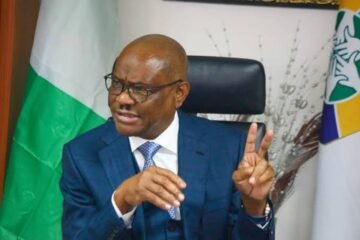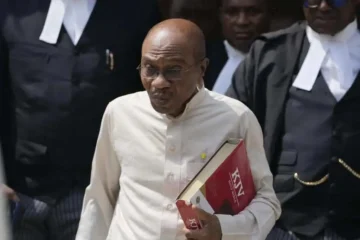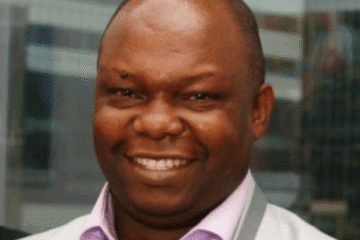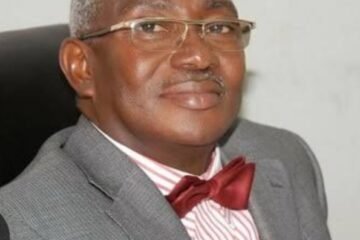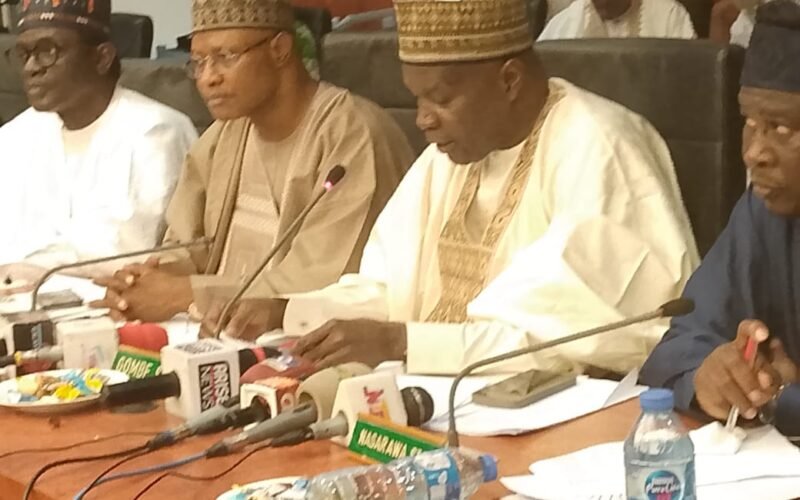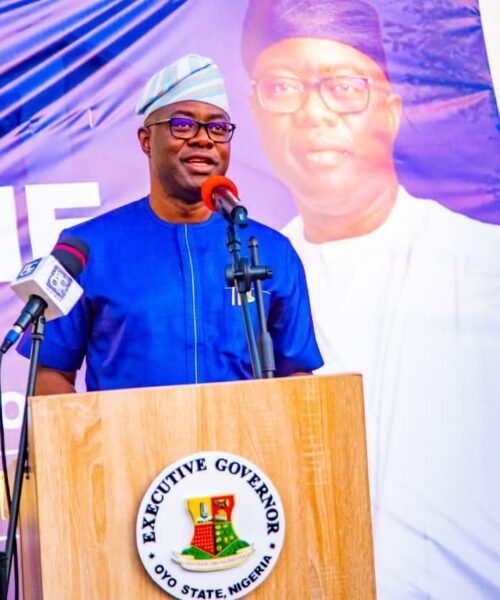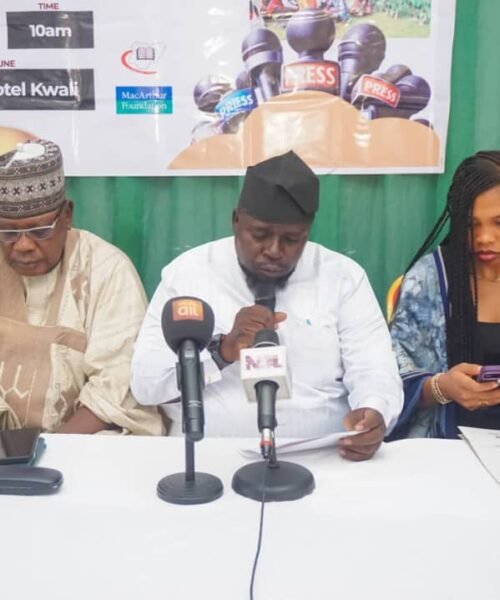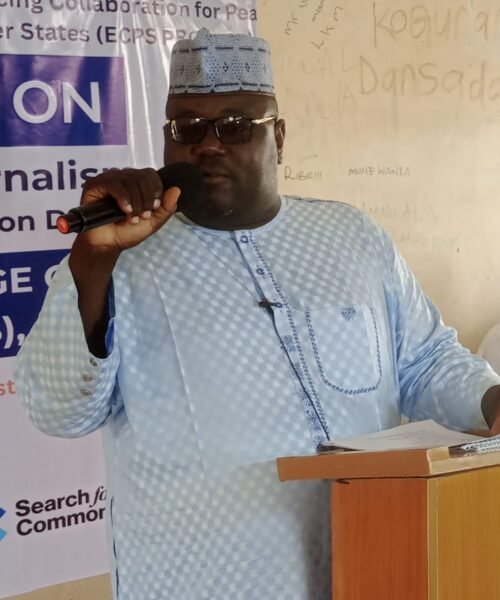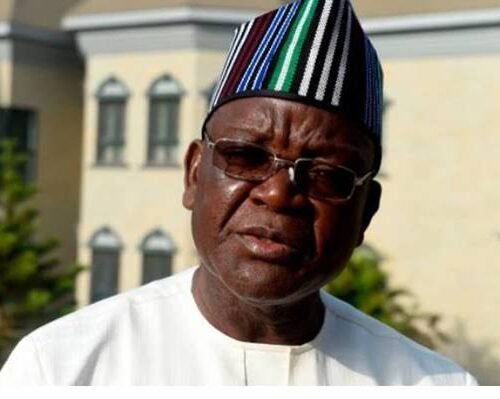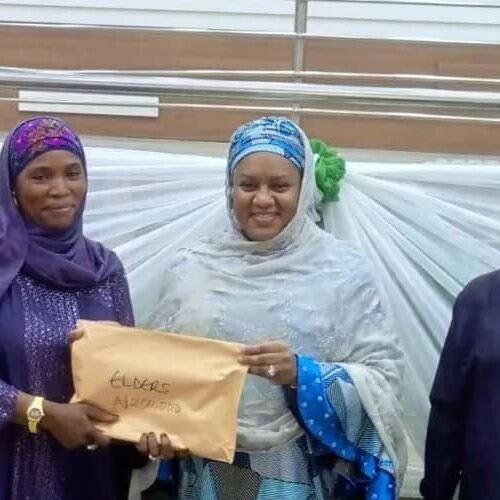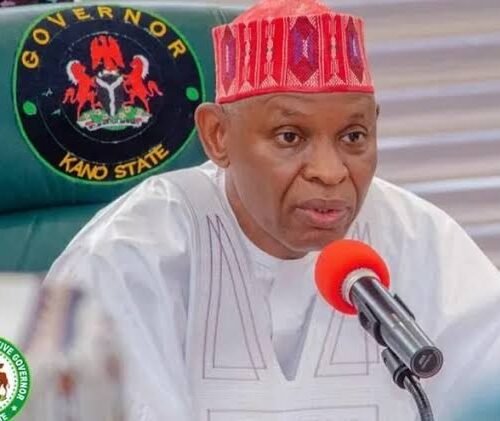By Achadu Gabriel, Kaduna
It was time to tell some home truths as the 19 Northern State Governors today acknowledged the resurgence of Boko Haram terrorist activities in parts of the region.
Boko Haram is a Salafi-jihadist terror group fighting for the replacement of the secular Nigerian state with an Islamic one based on a strict compliance to the Sharia law, throughout the country.
Borno State Governor, Professor Babagana Zulum, whose North-Eastern State has faced renewed murderous attacks by the group which the Global Terrorism Index ranked in 2019 as the second deadliest terrorist group in the world, had, recently cried out over the resurgence. But some persons countered his assertion on the ground that it failed to acknowledge the sacrifices of the military on the frontline.
However, the Northern States Governors’ Forum (NSGF) met today at Government House, Kaduna, to confirm the governor’s position.
Aside state governors, the forum’s meeting was also attended by all leading traditional rulers in the North.
In his opening speech on the occasion, Chairman of NSGF and Governor of Gombe State, North-East Nigeria, Gov. Muhammadu Inuwa Yahaya, said there have been renewed deadly attacks by Boko Haram in the North-East and outbreak of violent killings in the North-Central zone.
Recent reports said hundreds of persons have been killed by the insurgents, many injured, maimed while properties running into hundreds of millions were destroyed, in the mentioned areas, with the developments raising concerns about intelligence gathering, security deployments and constitutional stipulation on protection of lives and properties.
Governor Yahaya said there was need for review of operational strategies and closer synergy between federal, state and local governments in the region,to successfully fight the fresh menace.
Expressing NSGF’s “deepest condolences” to the governments and people of Plateau, Bauchi, Benue, Borno and Yobe States, and the entire people of Northern Nigeria over the recent tragic killings, the forum emphasized that more official actions need be undertaken to prevent these.
He noted that these mindless acts of violence against innocent citizens reminded the state chief executives of the urgent need to “redouble our security efforts and ensure that adequate security measures are vigorously implemented for the safety of our people.”
Yahaya added: “While we commend Mr. President for his sustained commitment to Nigeria’s security, we must acknowledge the recent setbacks in our efforts to combat insecurity and other social vices.”
On the Federal Government’s tax reform bill before the National Assembly, which sparked massive uproar in the North as the region believed it would be economically castrated by its enforcement, the governor said the matter had been resolved amicably through interface with relevant stakeholders.
His words: “The position we took on the tax reform bills engendered the reactions of a broad spectrum of Nigerians. I am pleased to report that through the platform of the Nigeria Governors’ Forum, the National Economic Council, and in consultation with leadership of the National Assembly, we found a way forward that will lead to a mutually beneficial resolution of the matter.
“This demonstrates the power of constructive engagement and I commend Mr. President for his listening ear and commitment to inclusive governance. We recommend that, going forward, such collaborative approach should guide all matters of intergovernmental relations in the interest of the people.”
Turning to infrastructure in the region, he said: “The state of infrastructure in Northern Nigeria remains a cause for major concern.
“While we acknowledge President Tinubu’s commitment to completing the ongoing Kaduna-Kano-Katsina-Maradi rail line, the Abuja-Kaduna-Kano Expressway, and the AKK Gas Pipeline, among many others, other projects like the Port Harcourt-Maiduguri rail line, Kano-Maiduguri Expressway, and Akwanga-Jos-Bauchi-Gombe-Biu Expressway, which were awarded in the past, remain in a serious state of neglect.
“In the same vein, no State of the North-East was captured in the Federal Government’s superhighway project. We must therefore explore innovative financing options, including public-private partnerships and infrastructure bonds, in order to bridge this gap and lay a solid foundation for agricultural production, industrialization and growth.”
On the economic front, the forum said the “New Nigeria Development Company (NNDC) was once the pride of Northern Nigeria and with proper restructuring, competent management and effective oversight, we can restore it to its former glory as a catalyst for regional economic development.
“The ongoing reform of the NNDC presents us with a golden opportunity to revive the economic fortunes of our region. While that has started, we must see to its successful implementation in order to actualize its lofty objectives.”
Dwelling on the almajiri (child beggar) syndrome prevalent in parts of the region, the governors admitted that, alongside lack of jobs, it constituted a serious challenge.
“The almajiri phenomenon and lack of job opportunities for our youths continue to pose serious challenges to our human capital development efforts.
“We must move beyond rhetoric to concrete actions that will take our children off the streets and provide them with quality education, vocational and professional skills.
“This requires coordinated action by all Northern States and partnership with relevant stakeholders, especially local and international development partners.”
As the rainy season approaches, the forum stated that “we must implement proactive measures to mitigate the perennial farmer-herder clashes and address climate-related challenges like floods and droughts.
“Our states must work closely with agencies like NEMA, NIMET and other related stakeholders in order to develop early warning systems, offer tangible support and implement sustainable solutions so as to boost agricultural productivity and enhance food security.”
The Gombe State Governor also thumbed up the role of royal fathers in assisting governments maintain social harmony.
“Let me at this point acknowledge the invaluable role of our traditional institution in maintaining social harmony. The wisdom and guidance of our traditional rulers remain indispensable as we navigate these complex times.
“We must continue to strengthen our partnership with them in governance and conflict resolution. I would like to assure you that this forum remains committed to work and ensure a constitutional role for our traditional rulers so as to make them be more effective in peace building and community development.
“In order to achieve these goals and ensure sustainable impact, the Northern States Governors’ Forum must be built on solid institutional foundation that can serve as a vehicle for the advancement of our regional agenda.
“I am grateful for the support of all our governors in this regard, as well as your commitment to building an NSGF that will outlive our individual administrations and continue to serve the interests of Northern Nigeria and its people,” he said.
Earlier, in his welcome remarks, the host, Governor of Kaduna State, Uba Sani, praised the relationship between the forum and traditional rulers, describing it as “unique in many respects.”
He noted: “Despite our diversity, the two bodies have found a way of forging consensus on critical issues and marching forward as united platforms.
“This approach has solidified Northern unity and garnered national respect for the forum and Traditional Council. We must continue in this spirit.
“We have made progress on many fronts. But challenges remain. I urge us to hasten the development of a roadmap for addressing issues of security, peace, governance and development in Northern Nigeria.
“Additionally, we must follow up the roadmap with an implementation and funding strategy. We don’t have luxury of time. Our people want results.
“I must not conclude this welcome address without commending President Bola Ahmed Tinubu for his unwavering commitment to addressing the infrastructural deficits in Northern Nigeria.
“One of Mr. President’s key interventions in our region is the long abandoned Abuja-Kaduna-Zaria-Kano Dual Carriageway. The road connects the Federal Capital Territory to about 12 States in the North Central, North-West and North-East Zones.
“It serves as a vital link for travelers moving between the Southern and Northern parts of Nigeria.
“Mr. President will go down in history as the leader who listened to the cries of the Northern people and took decisive action. We owe Mr. President a debt of gratitude.”


